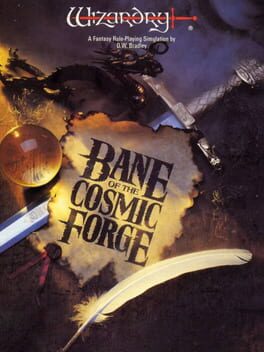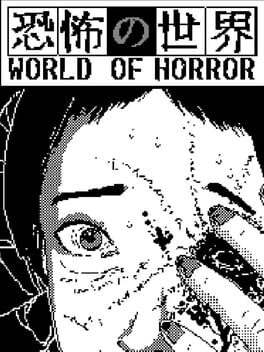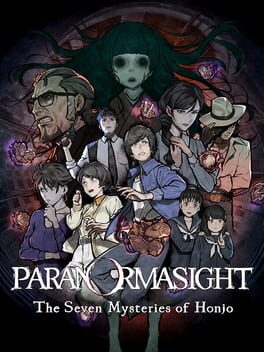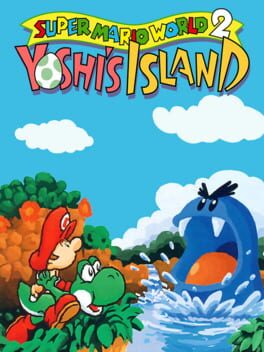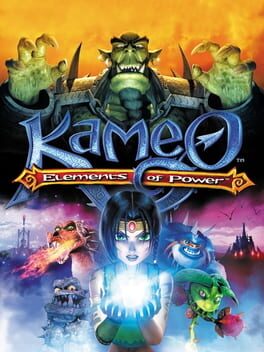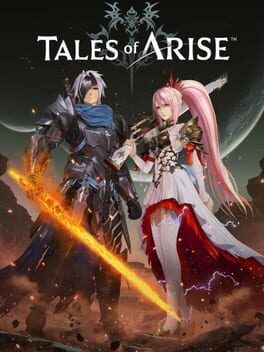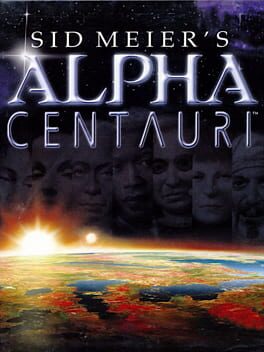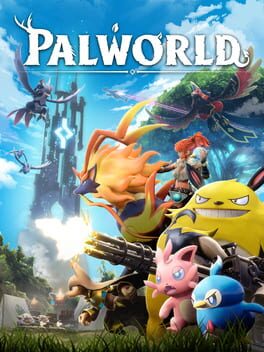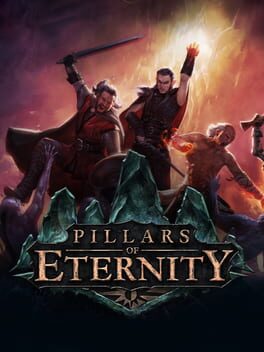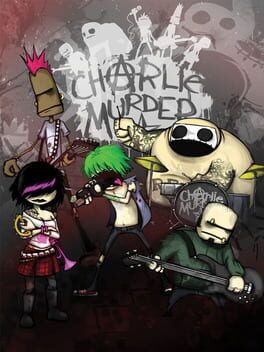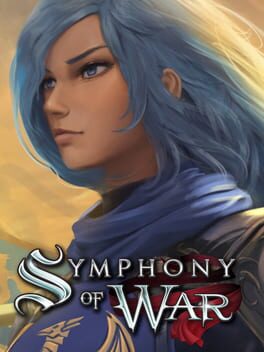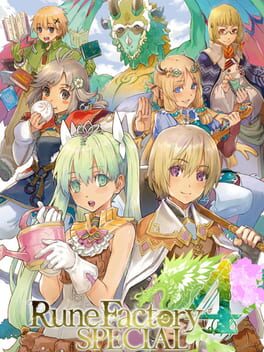LordTentacle69
997 Reviews liked by LordTentacle69
An absolute all-timer dungeon crawler with a super impressive map & fun combat. It's held back by some really dreary visuals, and the removal of towns (and no all-heal) makes the rest-fight loop get tiring, but the insane combat difficulty and quality of cartography keeps this entertaining anyway. Was my first Wizardry and it set the bar very high. Would come highly recommended if it weren't for the absurdly racist bit in the middle, so uh, watch out for that first (it's slightly less bad on snes).
World of Horror
2020
I'm blown away by how excruciating this game is.
Everything about it is laborious, like a relic of the worst elements of 3D platformers made years prior, with none of the charm. The controls feel like you're swimming through molasses and had me double checking to make sure I didn't accidentally turn off game mode on my TV.
Lead designer George Andreas later stated they should have scrapped Kameo and started over, and I have to agree. Its troubled development really shows and it's hard to believe Rare could make a game this bad.
Everything about it is laborious, like a relic of the worst elements of 3D platformers made years prior, with none of the charm. The controls feel like you're swimming through molasses and had me double checking to make sure I didn't accidentally turn off game mode on my TV.
Lead designer George Andreas later stated they should have scrapped Kameo and started over, and I have to agree. Its troubled development really shows and it's hard to believe Rare could make a game this bad.
Control
2019
Neat little 'irreality' game by the guys behind Alan Wake, Quantum Break, and the Max Payne writer. Remedy, at least from what I've seen, have always had a keen sense for aesthetics, and Control exceeds the mark. It doesn't always hold-up to it's own standard though; they're some areas that are way too rote and generic for this type of game, but there are some really strong areas and levels, with the Ashtray Maze being probably one of my favorite levels of the 2010's. The combat starts a little slow albeit serviceable, but with the access to each successive psionic power the game really opens up. By the time you have levitation, combat has evolved to a dynamic, fully 3-D spectacle of particle effects and psionics, with debris flying everywhere, makeshift cover quickly appearing and disappearing, and a variety of engages and disengages as you switch between your pistol types. It's actually quite difficult as well, with health regen only occuring on enemy death, so knowing the proper weakness and counters for every enemy type is crucial, enhancing the combat stakes even further.
The narrative is unfortunately carried very heavily by the direction; the director was behind Alan Wake so you know you're getting best-in-class stuff, but Sam Lake isn't in his Max Payne days anymore. By way of being a supernatural FBI story, there's some portents of metaphysics and bureaucratic critique here, but it fails to be meaningful in anyway, and the story just plainly falls flat on its face in the last 2 minutes, despite an excellent 1-2 hours beforehand. Still the direction is excellent, and as an audiovisual experience there are really some striking visuals and sequences, as well as the frequent use of visual imposing that is well-handled. Definitely my least favorite of the big weirdo trio in 2019, but a very strong game nonetheless.
The narrative is unfortunately carried very heavily by the direction; the director was behind Alan Wake so you know you're getting best-in-class stuff, but Sam Lake isn't in his Max Payne days anymore. By way of being a supernatural FBI story, there's some portents of metaphysics and bureaucratic critique here, but it fails to be meaningful in anyway, and the story just plainly falls flat on its face in the last 2 minutes, despite an excellent 1-2 hours beforehand. Still the direction is excellent, and as an audiovisual experience there are really some striking visuals and sequences, as well as the frequent use of visual imposing that is well-handled. Definitely my least favorite of the big weirdo trio in 2019, but a very strong game nonetheless.
Tales of Arise
2021
WE HAVE ACQUIRED TECHNOLOGY!
“We live in capitalism. Its power seems inescapable. So did the divine right of kings. Any human power can be resisted and changed by human beings. Resistance and change often begin in art, and very often in our art, the art of words.”
-- Ursula K. Le Guin, Datalinks
“We live in capitalism. Its power seems inescapable. So did the divine right of kings. Any human power can be resisted and changed by human beings. Resistance and change often begin in art, and very often in our art, the art of words.”
-- Ursula K. Le Guin, Datalinks
Palworld
2024
my gaming guilty pleasure is dropping an entire weekend into a janky survival crafting game with a bunch of friends, and palworld definitely delivered. it's far from perfect with plenty of bugs and a typical survival crafting grind that makes the experience start to lose its luster after the 30 hour mark, but there's a lot of new and fun ideas here that work together as more than the sum of their (very) inspired parts.
Pillars of Eternity
2015
in the first dungeon of pillars of eternity, there's a moment that really stuck with me. you encounter a xaurip - a classic fantasy racism beastman that trades in aesthetics uncomfortably pulled from indigenous american stereotypes. it indicates that you go no further, that you do not follow it down a path into it's territory. there's no option to convince it to step aside and let you past: you either respect it's wishes, turn around and find another path, or you walk forward and kill it as an enemy. it's a moment with, i think genuine nuance, where the agency of the xaurip is respected, a moment that actually asks the player to respect the culture of this people or defy it, preventing them from taking a empowering middle road where they can do whatever they want if they have high enough numbers.
anyway, in the very next area you immediately encounter a bunch of them that attack on sight and that you have no recourse but to slaughter.
this moment is pillars of eternity in microcosm. on every level of it's construction, it is a game that feels simultaneously genuinely aware of the fraught nature of many of the images it is evoking and the things it is doing, aware of the stain left by games of this ilk in the past, and also resignedly committed to doing those things anyway without the brazen dumb confidence of a game like divinity: original sin 2. progressive and regressive, inventive and derivative, evolutionary and counter-evolutionary, pillars of eternity is the fascinating attempt to harken back to bioware's baldur's gate and the crpgs of it's era made by a game that doesn't wholly see the value in going back there.
i won't speculate on director je sawyer's intent any more than the man has directly said himself, as he has shown real discomfort towards people suggesting his opinions on certain games, but i know from my mercifully brief visits to the fascist haven that is the rpgcodex forums that sawyer is a quite strong critic of how the classic infinity engine games actually played, and despite my fondness for RPGs of that style, i find myself very much on his side. there's a reason these games struggle to find new fans that aren't just going to turn the games down to the lowest difficulty to sidestep most of the actual playing of it as much as possible: advanced dungeons and dragons is not, by any metric, an elegant or intuitive system at the best of times, and while real-time with pause was an elegant solution to just how long combat in d&d can go on for (larian's proud statements that BG3 has an authentic, turn-based translation of 5E rules should absolutely terrify any prospective players), it only raises the barrier to entry for those not already au fe with ad&d's eccentricities.
pillars of eternity feels utterly unique in that it is a real-time with pause CRPG based on rules that were designed for a video game, and not for a very different medium, and as a result it is...actually good and fun. the rules and statistics are far clearer, the resource game is far more sensical, and the pace of encounters is such that individual moves are less frequent but far more impactful, maintaining the weighty impact turns have in a traditional turn-based game at a speed far more under your own control. experientially, pillars of eternity feels closer to FF12 than it does baldur's gate, with a sliding scale of playstyles ranging from making each move with care and precision, to writing full AI scripts for each member of the party and letting battles play out automatically at hyperspeed.
when i play games in this genre, i usually keep the difficulty low and drop it even lower if i encounter friction. but with pillars, i kept the difficulty on normal the entire way through because I genuinely enjoyed the gameplay and tactical puzzles it presented. it helped me to see, for the first time, why someone might prefer rtwp over turn-based, and when i started a pillars of eternity 2 playthrough shortly after playing this, i decided to stick to real-time rather than playing the game's new turn-based mode, because i became genuinely enamoured with this system.
pillars of eternity is in the unique position of being a baldur's gate homage that doesn't feel like it holds any particular reverence or great love for baldur's gate, and makes good on that position by well and truly killing bg's darlings where the system design is concerned. this isn't exactly uncharted territory for obsidian: but despite it's progressive approach to it's combat, it feels much more burdened by it's legacy than either kotor 2 or neverwinter nights 2, neither as caustic as the former nor as quietly confident as the latter. it sits uncomfortably among many of the things it does, inherited and otherwise.
to demonstrate: this is, in many ways, a d&d-ass setting. it's a roughly-medieval setting in a temperate forested coastal region, and yet the dyrwood is not medieval france/britain like the sword coast is, it's far closer to colonial canada both in terms of regional politics and technology. you have humans, you have elves, you have dwarves, and things that are kinda like gnomes but with the serial numbers filed off, you have the godlike, which are a twist on the aasimar/tieflings of d&d, each with their own gygaxian race science bonuses to stats, but aside from the aforementioned fantasy racism with the beastmen, these fantasy races matter less in the actual story than national identities and cultures, which makes one question why the race science stuff is even here. even stepping into the mechanical dimension, most of the classes are reasonably interesting interpretations of classic stock d&d archetypes like fighter, wizard, paladin, etc, but the two unique classes, chanter and cipher, are so obviously the design highlights and work in a way that would be incredibly difficult in a tabletop game but are beautiful in a video game. they eagerly invite the question of what this game would look like if it wasn't obligated to include the d&d obligations within it.
while i can't speak for every member of the development team, i know that for je sawyer, pillars of eternity was not necessarily a game he wanted to make - at least not in the way that it ended up being made. elements like the traditional fantasy setting, the real-time with pause gameplay, and even the presence of elves, were all things that were there to fulfil the demands of a kickstarter promising a baldur's gate throwback from a company that had fallen on difficult times. these things that feel like obligations feel like that because they are obligations: concessions to appeal to expectations and desires forged by nostalgia for a game that obsidian didn't actually make. these aren't the only visible compromises that mark the game - "compromise" being perhaps a generous word to describe the game's obnoxious kickstarter scars - but it is this tug of war between the parts of itself that wish to remain within the walls of baldur's gate, and the parts that cry out for escape, that ultimately defines pillars of eternity.
while maddening dreams and an epidemic of children born without souls is what drives the plot of pillars of eternity, the story is really in the conversations between tradition and very colonialist notions of progress, and the very opinionated characters you converse with along the way. likeable characters will hold quietly conservative worldviews that feel natural for them, people will say the right things for the wrong reasons, or the wrong things for the right reasons. friendly characters will have beliefs that are extremely distasteful to you but are so deeply held that there is no way to use the power granted to you by being the player character to dissuade them from their belief system with a few honeyed words. this is not a game where each element works towards a clear thematic conclusion, one that confidently knows what is right and what is wrong when discussing the things it brings up. it is a messy world filled with ugliness and argument and contradiction, and no clear definitive statement on its themes. it has a perspective, but it is not one held with immense confidence. it is a perspective mired with doubts and second-guessing that feels very conscious and deliberate. in particular, the final hour of the game has a twist that recontextualises the nature of the setting, but it's noticeable just how much of the cast, both in this game and in the sequel. find this not to be a redefining moment of their lives, but simply something they have to let sit in their gut like a millstone. it lets them see with new light things they once valued, but they feel unable to simply cast those things aside.
i have a particular distaste for critiques in geek circles narrow their focus on what a work is saying to only the series or genre the work finds itself in, and ignoring whatever resonance it might have to the world outside the fiction, subconsciously because the author has little experience of that world. and yet, it's difficult to read pillars of eternity without looking at it's relationship to baldur's gate and it's ilk, especially given how it kickstarted (lol) the late 2010s CRPG revival that led to breakout hits like divinity: original sin 2 and disco elysium. it walks in the meadows of the past with an uneasy rhythm, constantly expressing it's discomfort with being there but never quite being able to find the way out. even at the end of the game, there is delightfully scarce resolution to the weighty philosophical questions raised by the final act - the immediate crisis dealt with, certainly, but the game ends on a world that has raised questions rather than answered them, and while you may have your own thoughts and perspectives, there is no great victory of ideologies to be found, no grand, world-defining choice about what to do with the wisdom of the past. it's a game that simply ends with you emerging back into a world that is materially largely unchanged but colored so different by the new perspective you have on it. it is a game that is deliriously inconclusive.
one could word that as a criticism - and indeed, a strict formalist lens would probably find it as such - but honestly, it's what i find delightful and resonant about pillars of eternity. i'm someone who thinks generally very poorly about d&d as a game, but my intermittently weekly d&d games with my friends that have been going on since the first lockdown have made some incredible memories, a world and story and cast that i find myself hugely invested in. despite my disdain for a lot of the recurring cliches and tropes of the genre, some of my favorite stories are fantasy stories. and despite my active distaste for a lot of the decisions pillars either makes or is stuck with, and indeed for some of the creative minds involved in it's production (chrs avellne's characters were substantially rewritten after his departure from obsidian to such an extent that neither he nor je sawyer recognize them as "his characters" but whoever was behind durance specifically is doing such a conscious avellone impression that i would be remiss not to note that his presence is certainly felt) i still enjoy it immensely regardless.
frequently, engagement with art is a negotiation with the parts about it that speak to us and the parts that fail to do so, where we may be able to excuse or enjoy parts that others find to sink the entire work for them, and it's unexpectedly moving to find a game that was so visibly having that conversation with itself as i played it, and rang so true for the relationship i have with the things that inspired it.
it's a game that embodies the sticky and troubling way all the games and stories of it's ilk sit in my mind and expresses them emotively through a story that, in fits and starts, writes quite powerfully on the unique pains and sensation of memory and tradition and progress. it's a game that feels all the more true, all the more real, for it's contradictions, compromises, and conversations capped off with trailing ellipses, leading down two roads to an uncertain future and a depressingly familiar past.
anyway, in the very next area you immediately encounter a bunch of them that attack on sight and that you have no recourse but to slaughter.
this moment is pillars of eternity in microcosm. on every level of it's construction, it is a game that feels simultaneously genuinely aware of the fraught nature of many of the images it is evoking and the things it is doing, aware of the stain left by games of this ilk in the past, and also resignedly committed to doing those things anyway without the brazen dumb confidence of a game like divinity: original sin 2. progressive and regressive, inventive and derivative, evolutionary and counter-evolutionary, pillars of eternity is the fascinating attempt to harken back to bioware's baldur's gate and the crpgs of it's era made by a game that doesn't wholly see the value in going back there.
i won't speculate on director je sawyer's intent any more than the man has directly said himself, as he has shown real discomfort towards people suggesting his opinions on certain games, but i know from my mercifully brief visits to the fascist haven that is the rpgcodex forums that sawyer is a quite strong critic of how the classic infinity engine games actually played, and despite my fondness for RPGs of that style, i find myself very much on his side. there's a reason these games struggle to find new fans that aren't just going to turn the games down to the lowest difficulty to sidestep most of the actual playing of it as much as possible: advanced dungeons and dragons is not, by any metric, an elegant or intuitive system at the best of times, and while real-time with pause was an elegant solution to just how long combat in d&d can go on for (larian's proud statements that BG3 has an authentic, turn-based translation of 5E rules should absolutely terrify any prospective players), it only raises the barrier to entry for those not already au fe with ad&d's eccentricities.
pillars of eternity feels utterly unique in that it is a real-time with pause CRPG based on rules that were designed for a video game, and not for a very different medium, and as a result it is...actually good and fun. the rules and statistics are far clearer, the resource game is far more sensical, and the pace of encounters is such that individual moves are less frequent but far more impactful, maintaining the weighty impact turns have in a traditional turn-based game at a speed far more under your own control. experientially, pillars of eternity feels closer to FF12 than it does baldur's gate, with a sliding scale of playstyles ranging from making each move with care and precision, to writing full AI scripts for each member of the party and letting battles play out automatically at hyperspeed.
when i play games in this genre, i usually keep the difficulty low and drop it even lower if i encounter friction. but with pillars, i kept the difficulty on normal the entire way through because I genuinely enjoyed the gameplay and tactical puzzles it presented. it helped me to see, for the first time, why someone might prefer rtwp over turn-based, and when i started a pillars of eternity 2 playthrough shortly after playing this, i decided to stick to real-time rather than playing the game's new turn-based mode, because i became genuinely enamoured with this system.
pillars of eternity is in the unique position of being a baldur's gate homage that doesn't feel like it holds any particular reverence or great love for baldur's gate, and makes good on that position by well and truly killing bg's darlings where the system design is concerned. this isn't exactly uncharted territory for obsidian: but despite it's progressive approach to it's combat, it feels much more burdened by it's legacy than either kotor 2 or neverwinter nights 2, neither as caustic as the former nor as quietly confident as the latter. it sits uncomfortably among many of the things it does, inherited and otherwise.
to demonstrate: this is, in many ways, a d&d-ass setting. it's a roughly-medieval setting in a temperate forested coastal region, and yet the dyrwood is not medieval france/britain like the sword coast is, it's far closer to colonial canada both in terms of regional politics and technology. you have humans, you have elves, you have dwarves, and things that are kinda like gnomes but with the serial numbers filed off, you have the godlike, which are a twist on the aasimar/tieflings of d&d, each with their own gygaxian race science bonuses to stats, but aside from the aforementioned fantasy racism with the beastmen, these fantasy races matter less in the actual story than national identities and cultures, which makes one question why the race science stuff is even here. even stepping into the mechanical dimension, most of the classes are reasonably interesting interpretations of classic stock d&d archetypes like fighter, wizard, paladin, etc, but the two unique classes, chanter and cipher, are so obviously the design highlights and work in a way that would be incredibly difficult in a tabletop game but are beautiful in a video game. they eagerly invite the question of what this game would look like if it wasn't obligated to include the d&d obligations within it.
while i can't speak for every member of the development team, i know that for je sawyer, pillars of eternity was not necessarily a game he wanted to make - at least not in the way that it ended up being made. elements like the traditional fantasy setting, the real-time with pause gameplay, and even the presence of elves, were all things that were there to fulfil the demands of a kickstarter promising a baldur's gate throwback from a company that had fallen on difficult times. these things that feel like obligations feel like that because they are obligations: concessions to appeal to expectations and desires forged by nostalgia for a game that obsidian didn't actually make. these aren't the only visible compromises that mark the game - "compromise" being perhaps a generous word to describe the game's obnoxious kickstarter scars - but it is this tug of war between the parts of itself that wish to remain within the walls of baldur's gate, and the parts that cry out for escape, that ultimately defines pillars of eternity.
while maddening dreams and an epidemic of children born without souls is what drives the plot of pillars of eternity, the story is really in the conversations between tradition and very colonialist notions of progress, and the very opinionated characters you converse with along the way. likeable characters will hold quietly conservative worldviews that feel natural for them, people will say the right things for the wrong reasons, or the wrong things for the right reasons. friendly characters will have beliefs that are extremely distasteful to you but are so deeply held that there is no way to use the power granted to you by being the player character to dissuade them from their belief system with a few honeyed words. this is not a game where each element works towards a clear thematic conclusion, one that confidently knows what is right and what is wrong when discussing the things it brings up. it is a messy world filled with ugliness and argument and contradiction, and no clear definitive statement on its themes. it has a perspective, but it is not one held with immense confidence. it is a perspective mired with doubts and second-guessing that feels very conscious and deliberate. in particular, the final hour of the game has a twist that recontextualises the nature of the setting, but it's noticeable just how much of the cast, both in this game and in the sequel. find this not to be a redefining moment of their lives, but simply something they have to let sit in their gut like a millstone. it lets them see with new light things they once valued, but they feel unable to simply cast those things aside.
i have a particular distaste for critiques in geek circles narrow their focus on what a work is saying to only the series or genre the work finds itself in, and ignoring whatever resonance it might have to the world outside the fiction, subconsciously because the author has little experience of that world. and yet, it's difficult to read pillars of eternity without looking at it's relationship to baldur's gate and it's ilk, especially given how it kickstarted (lol) the late 2010s CRPG revival that led to breakout hits like divinity: original sin 2 and disco elysium. it walks in the meadows of the past with an uneasy rhythm, constantly expressing it's discomfort with being there but never quite being able to find the way out. even at the end of the game, there is delightfully scarce resolution to the weighty philosophical questions raised by the final act - the immediate crisis dealt with, certainly, but the game ends on a world that has raised questions rather than answered them, and while you may have your own thoughts and perspectives, there is no great victory of ideologies to be found, no grand, world-defining choice about what to do with the wisdom of the past. it's a game that simply ends with you emerging back into a world that is materially largely unchanged but colored so different by the new perspective you have on it. it is a game that is deliriously inconclusive.
one could word that as a criticism - and indeed, a strict formalist lens would probably find it as such - but honestly, it's what i find delightful and resonant about pillars of eternity. i'm someone who thinks generally very poorly about d&d as a game, but my intermittently weekly d&d games with my friends that have been going on since the first lockdown have made some incredible memories, a world and story and cast that i find myself hugely invested in. despite my disdain for a lot of the recurring cliches and tropes of the genre, some of my favorite stories are fantasy stories. and despite my active distaste for a lot of the decisions pillars either makes or is stuck with, and indeed for some of the creative minds involved in it's production (chrs avellne's characters were substantially rewritten after his departure from obsidian to such an extent that neither he nor je sawyer recognize them as "his characters" but whoever was behind durance specifically is doing such a conscious avellone impression that i would be remiss not to note that his presence is certainly felt) i still enjoy it immensely regardless.
frequently, engagement with art is a negotiation with the parts about it that speak to us and the parts that fail to do so, where we may be able to excuse or enjoy parts that others find to sink the entire work for them, and it's unexpectedly moving to find a game that was so visibly having that conversation with itself as i played it, and rang so true for the relationship i have with the things that inspired it.
it's a game that embodies the sticky and troubling way all the games and stories of it's ilk sit in my mind and expresses them emotively through a story that, in fits and starts, writes quite powerfully on the unique pains and sensation of memory and tradition and progress. it's a game that feels all the more true, all the more real, for it's contradictions, compromises, and conversations capped off with trailing ellipses, leading down two roads to an uncertain future and a depressingly familiar past.
Charlie Murder
2013
Untapped potential.
The mixture of Fire Emblem and Ogre Battle is a great idea and it works here to some degree but the game never really manages to balance itself around the mechanics. Instead it resorts to level design that focuses on large maps swarmed with mostly weak units. Despite that finishing levels well below the turn limit is an easy task that takes a whole lot of time, even if you completely turn off battle animation.
The micromanagement aspect has similar issues, it starts out fun and intriguing but quickly bloats out of control. You assign up to 9 units to squads, assign 2-3 traits per unit, and then assign 3 gear pieces per squad. Later levels allows you to deploy up to 20 squads, shit adds up quickly and with how easy the game is -it turns from tactical to menial.
Story is not that bad but it's not very engaging either. There are few moments and characters that rise above but they're scarce. The 2nd half of the story just drags.
World building is mostly generic with a couple interesting flares like the Donari temple.
The game does try to say something about zealots and curroption but it doesn't commit to it.
Graphics are a very mixed bag and it's where the game shows its budget.
There like 4 different styles going on that don't mix.
Cutscenes are RPG Maker assets complete with overused low res fx.
This era of RPG Maker sprites just looks bad (2000 forever!!)
The battlemap grid and sprites look much better but the cherry on top is the combat sprites who had a lot of love and talent poured into them (though I could do without the pronounced buttcheeks of a certain titan).
The updated portraits are lovely, something about this mixture of western art with anime influences works on me.
Overall it's a nice experience for fans of the genre that overstays its welcome.
RIP Zorro, you were a real one.
The mixture of Fire Emblem and Ogre Battle is a great idea and it works here to some degree but the game never really manages to balance itself around the mechanics. Instead it resorts to level design that focuses on large maps swarmed with mostly weak units. Despite that finishing levels well below the turn limit is an easy task that takes a whole lot of time, even if you completely turn off battle animation.
The micromanagement aspect has similar issues, it starts out fun and intriguing but quickly bloats out of control. You assign up to 9 units to squads, assign 2-3 traits per unit, and then assign 3 gear pieces per squad. Later levels allows you to deploy up to 20 squads, shit adds up quickly and with how easy the game is -it turns from tactical to menial.
Story is not that bad but it's not very engaging either. There are few moments and characters that rise above but they're scarce. The 2nd half of the story just drags.
World building is mostly generic with a couple interesting flares like the Donari temple.
The game does try to say something about zealots and curroption but it doesn't commit to it.
Graphics are a very mixed bag and it's where the game shows its budget.
There like 4 different styles going on that don't mix.
Cutscenes are RPG Maker assets complete with overused low res fx.
This era of RPG Maker sprites just looks bad (2000 forever!!)
The battlemap grid and sprites look much better but the cherry on top is the combat sprites who had a lot of love and talent poured into them (though I could do without the pronounced buttcheeks of a certain titan).
The updated portraits are lovely, something about this mixture of western art with anime influences works on me.
Overall it's a nice experience for fans of the genre that overstays its welcome.
RIP Zorro, you were a real one.
Spec Ops: The Line
2012
They draw you in with the "This is your fault", they hook you with the "How many Americans have you killed today?", and they reel you in with the "If Lugo were still alive, he would likely suffer from PTSD. So, really, he's the lucky one."
Shows immeasurable guts and measured sincerity in critiquing American's most respected and well-regarded foundation: The Troops. No one has ever, or will ever, have the guts to say "War Bad" again.
Shows immeasurable guts and measured sincerity in critiquing American's most respected and well-regarded foundation: The Troops. No one has ever, or will ever, have the guts to say "War Bad" again.
